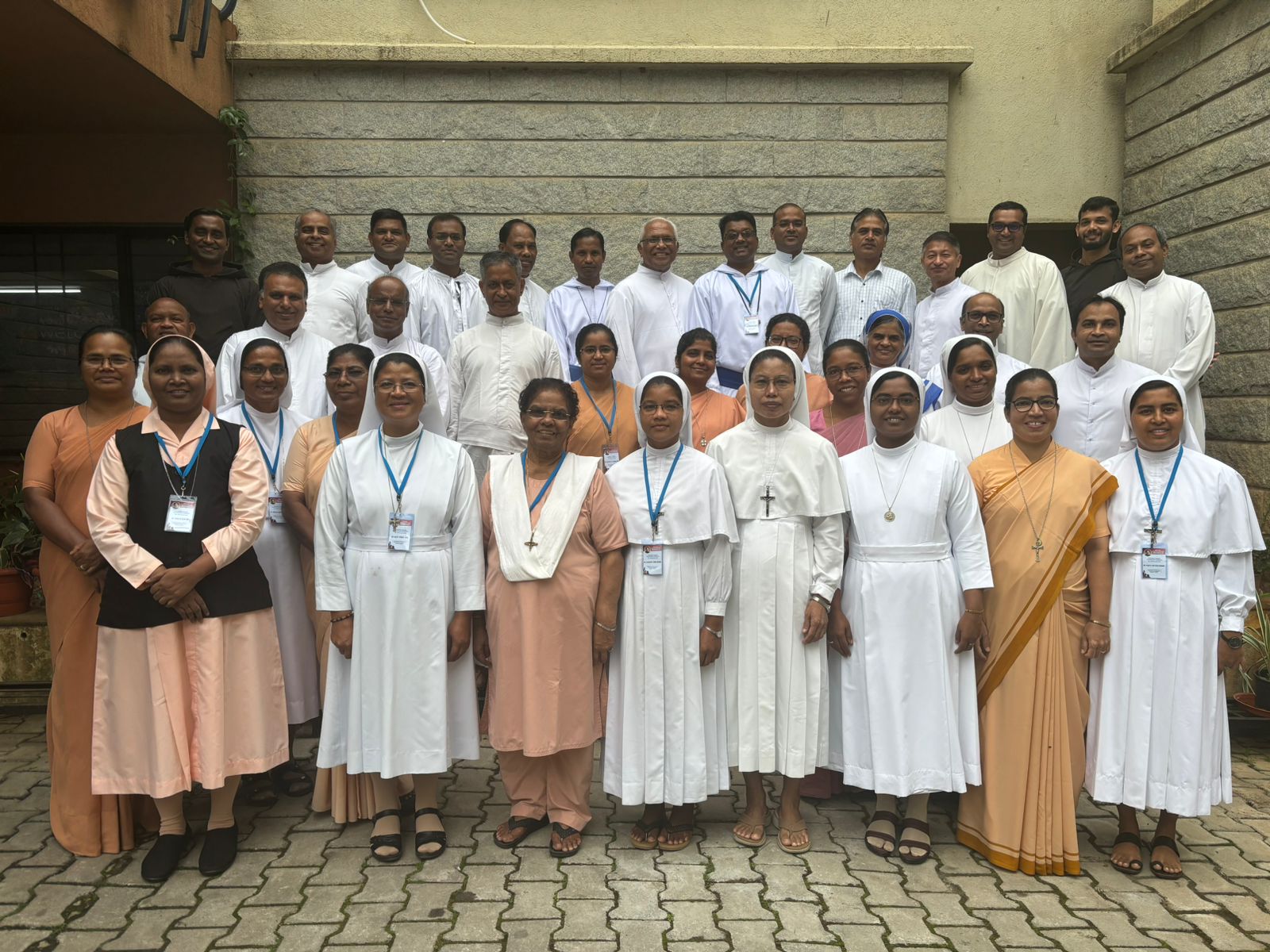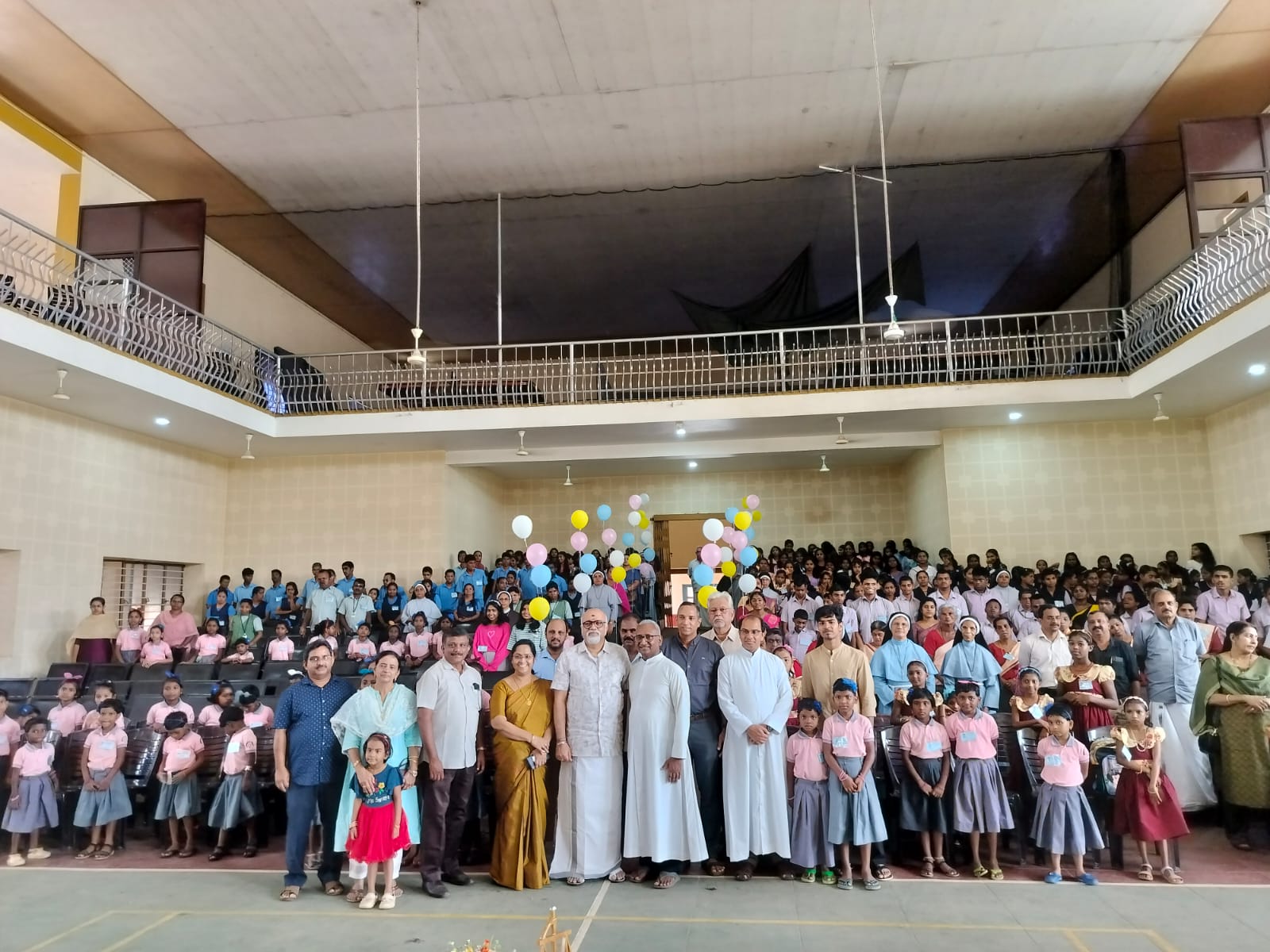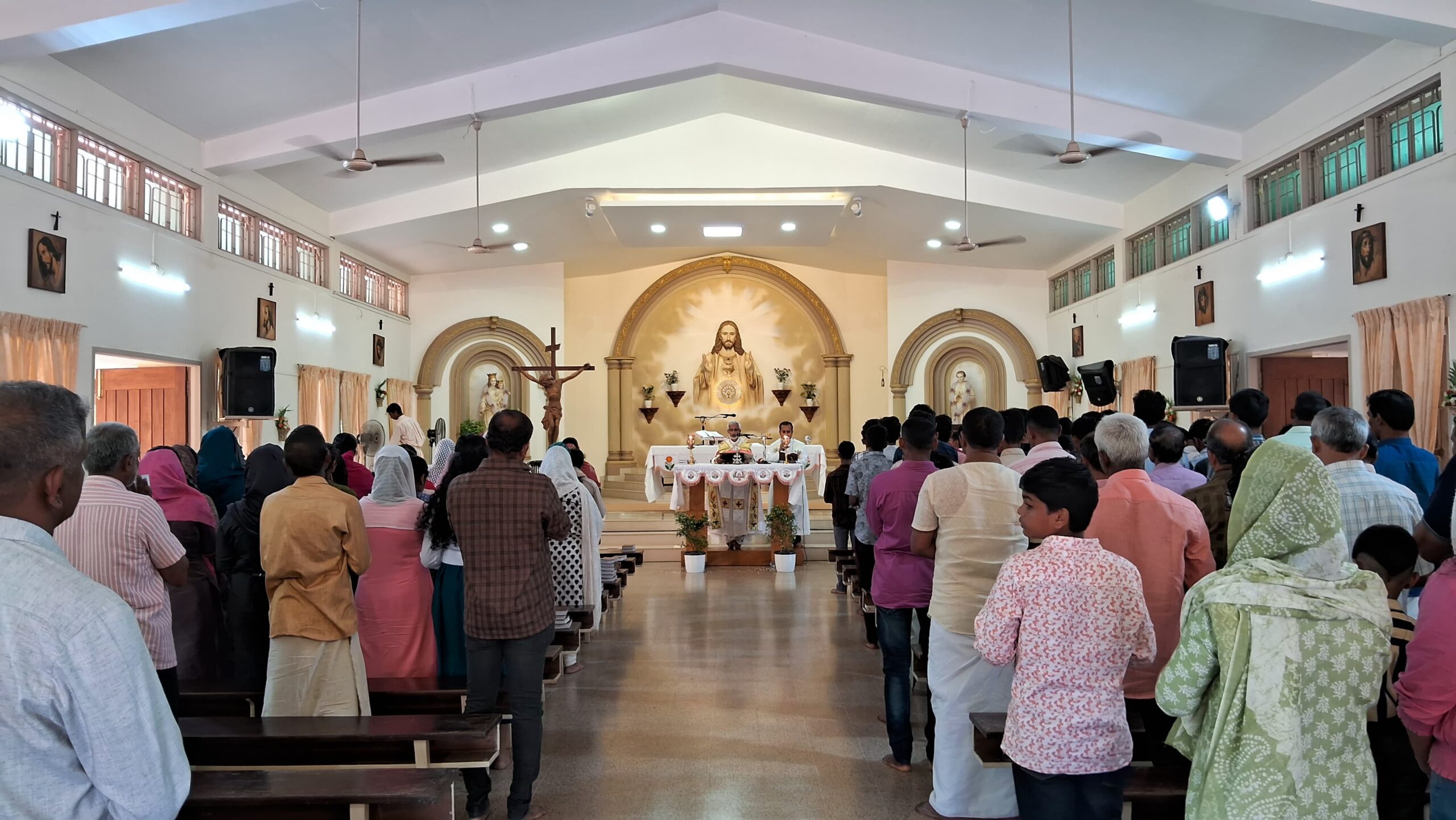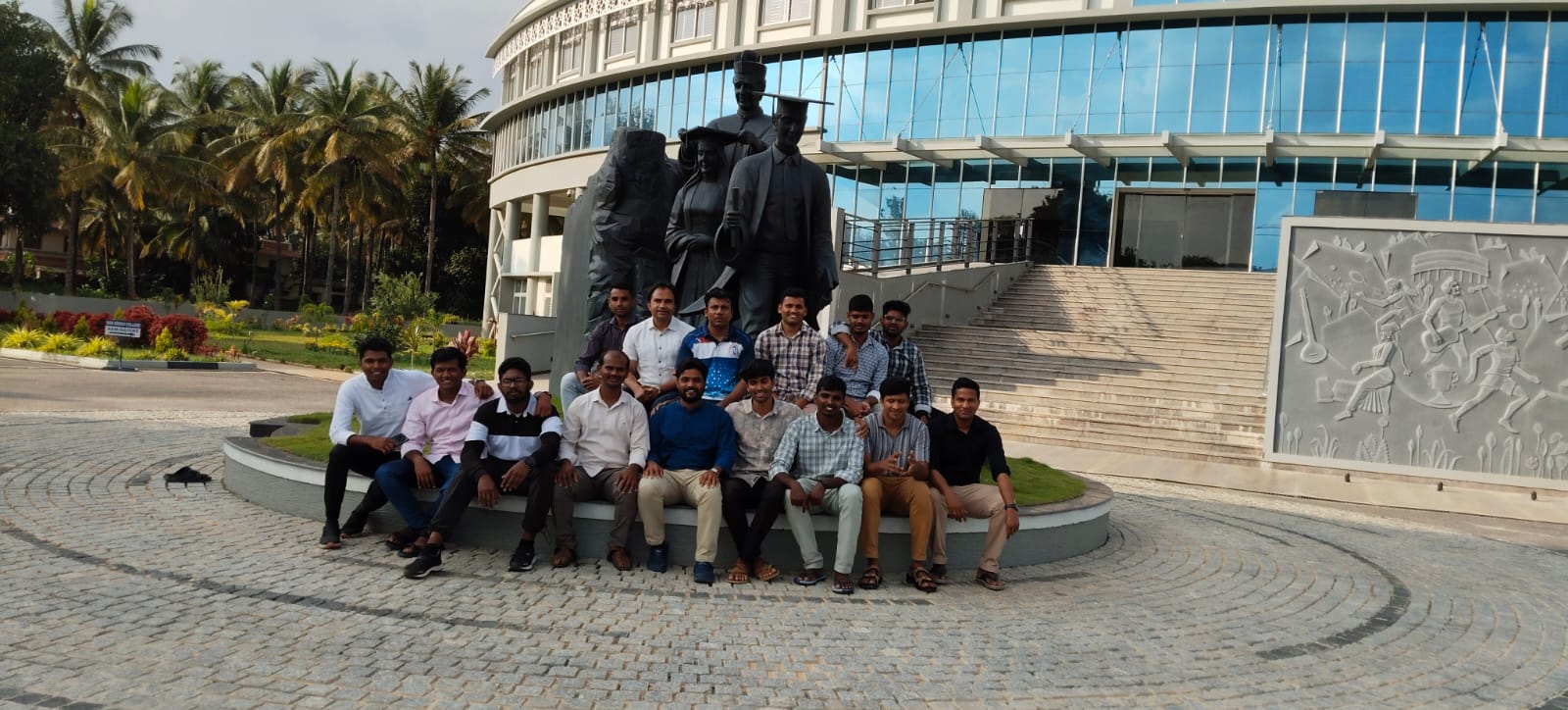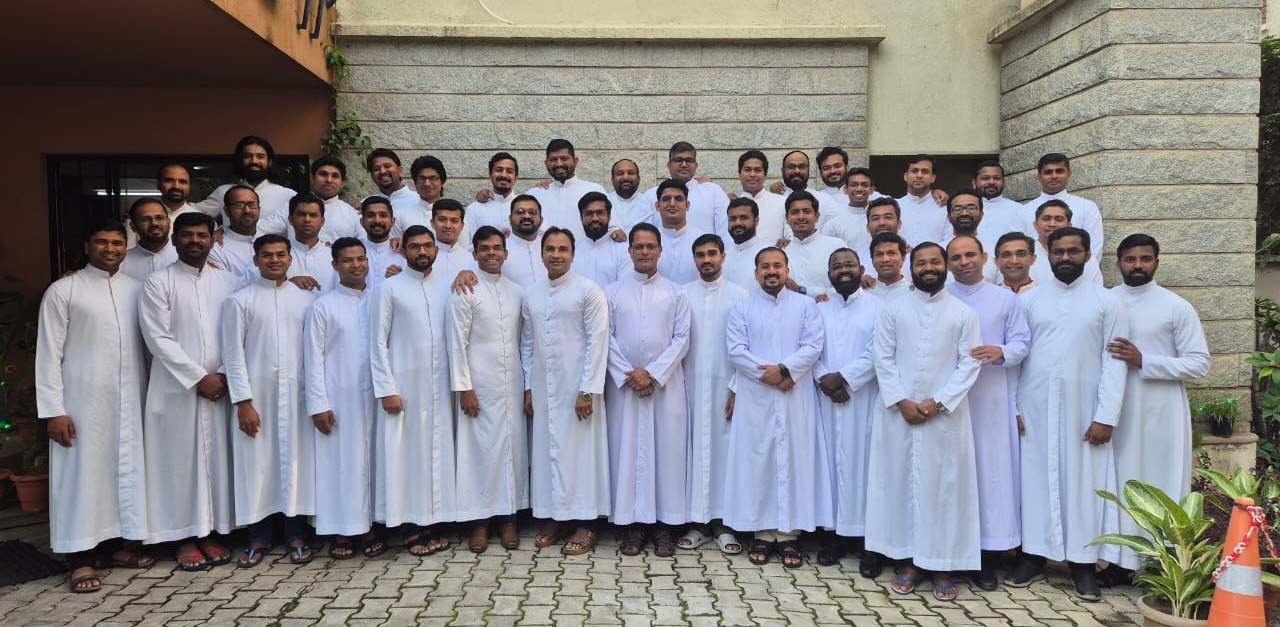
AN INVITATION FOR RE-CENTRING OURSELVES IN CHRIST
We are at the doorstep of the Season of Lent. The season brings mixed feelings in different people. Some are happy because of the absence of major celebrations and expenses; for some it is a bitter pill to swallow due to abstinence from non-vegetarian food; for others it’s a time to plan and equip themselves for Easter and summer ministries, for some others it is a time of speculation as they await the annual transfers and new apostolic assignments. For some communities it’s a time to cut down on extra expenses and save money to help the poor and contribute to the solidarity fund of the Rector Major. Whatever be the concern or priority – expressed or non – of individuals and communities, Holy Mother the Church offers us the Season of Lent once again as an opportunity to reflect upon the very core of Christian life: placing Christ at the Centre or Re-centring ourselves in Christ. This is a favourable time to renew our journey of faith, both as individuals and as communities, with the help of the word of God and the sacraments. This journey is one marked by prayer and sharing, silence and fasting, forgiveness and reflection, in anticipation of the Easter joy.
As we begin the Season of Lent, I feel it is good to re-emphasise the relevance of this Season. Just as nature evolves into different seasons for the sake of renewal and re-creation of itself and humanity, so too this season of Lent is a time set apart for our renewal and transformation into the person of Jesus Christ as we make this journey as a synodal Church together with Christ, our Head. During this period, we will hear prophet Joel delivering a message of warning from God to the people in the southern Kingdom of Judah. He declares: “Rend your hearts and not your clothing.” In other words, “Return to the LORD, your God, for he is gracious and merciful, slow to anger and abounding in steadfast love” (Joel 2,13). This season offers us a favourable time to reach out to the poor, the lonely and those who lack the basic necessities of life to survive in their own homeland. Lent also provides each person a golden opportunity to strengthen and/or heal one’s own relationship with the Lord through prayer, holy hours, the celebration of the sacraments of reconciliation and Eucharist with joy.
There are several key pillars for our support during this season to enable us to become more attentive to God’s voice and more selfless, such as prayer, meditation, spiritual renewal, as well as fasting and almsgiving (charity). These key elements involve not only what we are willing to give up – limiting time on cell phones, tablets and computers – but also what we are willing to take on in sharing our God-given gifts and talents with those who are neglected and disregarded.
The prophet Isaiah too in encourages a specific approach to fasting that could easily supplement the more traditional forms that most people are accustomed to using. He recommends that we choose to loosen the bonds of injustice, and that we let the oppressed go free. Moreover, he also champions sharing bread with the hungry and caring for the homeless. He declares, “Your light shall break forth like the dawn, and your healing shall spring up quickly” (Isaiah 58:1-12).
Pope Francis in his encyclical Laudato Si’ sheds more light on the environmental injustices that are particularly prevalent in areas where the poor and the marginalized reside. He asserts that the violence we inflict on nature is evident in the sickness of the water, the soil and the air. As a result, Mother Earth is being laid to waste and her inhabitants are crying out in pain. During this Lenten Season may we strive to think less of ourselves and more about our brothers and sisters who are less capable of doing things for themselves because they lack access to basic services or opportunities that could provide them with the essential necessities required for a better life.
The future of humanity and our planet Earth does not rest solely in the hands of powerful leaders. It is essentially in the hands of those who have the ability and humility to organize and influence others to bring about a change for the betterment of our common home and all her inhabitants. May we strive to become beacons of hope to those living on the fringes of society. May we serve them with compassion, empathy and sensitivity. And may our lives manifest value in God’s eyes – not because of any kind of secular success – but by how we treat the neediest of God’s children, who suffer even more when Earth continues to deteriorate because of our negligence and carelessness. Consider empowering others (young people in our communities and institutions, our lay collaborators, staff, friends, neighbours and/or parishioners) to better serve those who are oppressed and neglected – in other words, those most in need!
Season of Lent in our Communities and Ministries as a Province
“Let us be concerned for each other, to stir a response in love and good works” (Heb 10:24). These words are part of a passage in which the sacred author exhorts us to trust in Jesus Christ as the High Priest who has won us forgiveness and opened up a pathway to God. The season of Lent is a gift given to us to prepare ourselves to imitate the life of Jesus deeper and grow into his likeness. Embracing Christ bears fruit in a life structured by the three theological virtues: it means approaching the Lord
“sincere in heart and filled with faith” (v. 22), keeping firm “in the hope we profess” (v. 23) and ever mindful of living a life of “love and good works” (v. 24) together with our brothers and sisters. The author states that to sustain this life shaped by the Gospel it is important to participate in the liturgy and community prayer, mindful of the eschatological goal of full communion in God (v. 25). In another verse of the Letter to the Hebrews, we hear the encouragement to “turn your minds to Jesus” (3:1), the Apostle and High Priest of our faith. So, the verb which introduces the exhortation tells us to look at others – first of all at Jesus – to be concerned for one another, and not to remain isolated and indifferent to the fate of our brothers and sisters. Concern for others entails desiring what is good for them (confreres in the community and our young people and lay collaborators) from every point of view: physical, moral and spiritual. Contemporary culture seems to have lost the sense of good and evil, yet there is a real need to reaffirm that good does exist and will prevail, because God is “generous and acts generously” (Ps 119:68). The good is whatever gives, protects and promotes life, brotherhood and communion. Responsibility towards others means desiring and working for the good of others, in the hope that they too will become receptive to goodness and its demands. Concern for others means being aware of their needs. Sacred Scripture warns us of the danger that our hearts can become hardened by a sort of “spiritual anesthesia” which numbs us to the suffering of others. What hinders this humane and loving gaze towards our brothers and sisters? Often it is the possession of material riches and a sense of sufficiency, but it can also be the tendency to put our own interests and problems above all else. We should never be incapable of “showing mercy” towards those who suffer. Our hearts should never be so wrapped up in our affairs and problems that they fail to hear the cry of the poor. Reaching out to others and opening our hearts to their needs can become an opportunity for salvation and blessedness. “Being concerned for each other” also entails being concerned for their spiritual well-being. Here I would like to mention an aspect of the Christian life, which I believe has been quite forgotten: fraternal correction in view of eternal salvation. Today, in general, we are very sensitive to the idea of charity and caring about the physical and material well-being of others, but almost completely silent about our spiritual responsibility towards our brothers and sisters. In a world pervaded by individualism, it is essential to rediscover the importance of fraternal correction, so that together we may journey towards holiness. Scripture tells us that even “the upright falls seven times” (Prov 24:16); all of us are weak and imperfect (cf. 1 Jn 1:8). It is a great service, then, to help others and allow them to help us, so that we can be open to the whole truth about ourselves, improve our lives and walk more uprightly in the Lord’s ways. There will always be a need for a gaze which loves and admonishes, which knows and understands, which discerns and forgives (cf. Lk 22:61), as God has done and continues to do with each of us (Pope Benedict XVI). Concern for one another likewise means acknowledging the good that the Lord is doing in others and giving thanks for the wonders of grace that Almighty God in his goodness continuously accomplishes in his children. When Christians perceive the Holy Spirit at work in others, they cannot but rejoice and give glory to the heavenly Father (cf. Mt 5:16).
Season of Lent in our Personal Life
Lent is the past tense of Lend. It is a time to remember that everything we have is borrowed. God is the big lender. We are dust and to dust we shall return. More than fasting and abstinence Lent, as Catholic Archbishop Socrates Villegas said, is “an apt season to begin cultivating an attitude or lifestyle of Gratitude”. The gratitude that comes from encountering Christ’s love and mercy is enough to make people holy. “We don’t become holy by giving up alone. We don’t become holy by doing something for the Lord,” he said. “What makes us holy is Gratitude… Gratitude is what makes people saints, and ingratitude is what makes people devils,” he stressed. But he asserted that
being grateful is “more important” than giving up and sacrificing. “It is not about what we give up. It is saying ‘thank you’ for everything that makes us holy. “Let it be clear, God does not need what we want to do for him because Christianity is not about telling people what to do for God. Christianity is about telling people what God has done for humanity.” What’s more, by His wounds we are healed (Is 53:5), he added. Remember that between the ashes of our origin and the ashes of our conclusion we have many blessings. Do not forget that all those blessings came from the Lord. In Latin Lente means slowly. The Lenten season is time to slow down and appreciate the little things that we have ignored because we are so busy with ourselves. One description of the Season of Lent in our personal life could be “…a period to empty ourselves of lesser things so that we might be filled with the greater things of the gospel” (The Village Church Lent Guide). Lent has long been associated with giving things up personally. By engaging in repentance, fasting, and self-denial, we make room for our brokenness and sin to be revealed and for the splendour of the cross to fill us. As we empty ourselves of the cares of this world and embrace the cross, we echo the heart of Paul when he writes to the church in Corinth, “For I decided to know nothing among you except Jesus Christ, and him crucified” (1 Cor 2:2). The ultimate prize for us is simply that we get more of Jesus. This is the ultimate aim and reward of Lent. Not that we would become masters of self-denial, fasting or any other discipline. Not that we would gain wisdom, knowledge or some sort of expertise. The true pursuit is the person of Jesus.
Lent in German means spring. It is the time that the roots sink more deeply into the earth. Lent is the spring time for the soul. The road to the cross that Jesus endured was paved by the spiritual, emotional and physical death that entered our personal world because of sin (Gen 2:17, Rom 5:12). During this season we reflect on the brokenness of our personal world because of death. We experience death daily in broken relationships, anger, depression, physical sickness, and in many other ways which assail us in quiet moments, “Things are not always the way they are supposed to be” in our personal life. Therefore, to ponder death in this way produces a longing for restoration and offers a spring time for our souls to strike deep roots of faith and gratitude – a longing for new life. We groan inwardly to be set free from this bondage of death (Rom 8:21-22). Lent cultivates a deep desire and anticipation for restoration in us. We await and crave for the message of Easter – the joyous news that Jesus has put death to death. Lent is indeed not the end of the story, but a crucial word that manifests and enriches the beauty of the gospel. This season helps us frame the story of our life within the truer and better story of God – by seeking more of Jesus! May this Season of Lent be an occasion for us to see more of Jesus in us and in others (Repentance), to journey more with Jesus (Prayer) and to be more of Jesus to others in need (Charity).
Wishing all of you, dear confreres, a holy and fruitful time of Lent,
Affectionately in the Lord.
Fr. Jose Thomas Koyickal sdb,
Provincial
-
REDISCOVERIN...
13 October 2024 -
SYNODALITY A...
13 September 2024 -
INDEPENDENCE...
04 August 2024 -
THE SACRED H...
04 August 2024 -
THE SPIRITUA...
04 August 2024 -
EMBRACING EA...
04 August 2024 -
ST. JOSEPH: ...
04 March 2024 -
Dream of Don...
22 January 2024 -
THE EDUCATIV...
08 September 2023 -
INTEGRATION ...
11 May 2023



